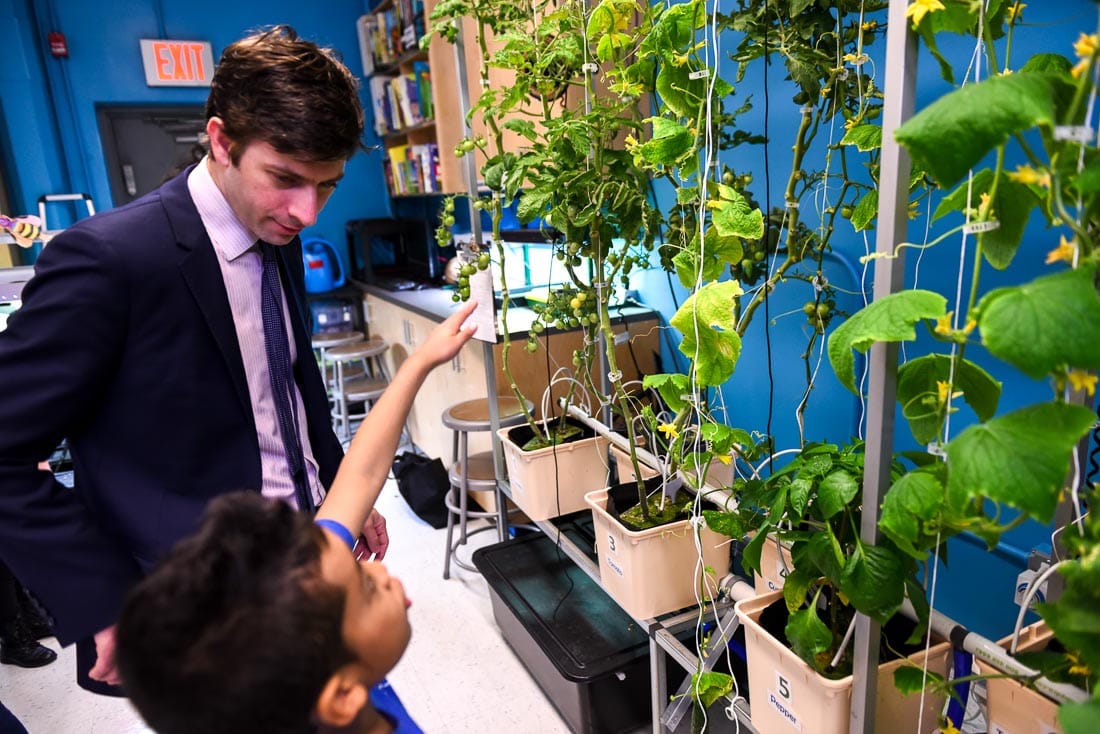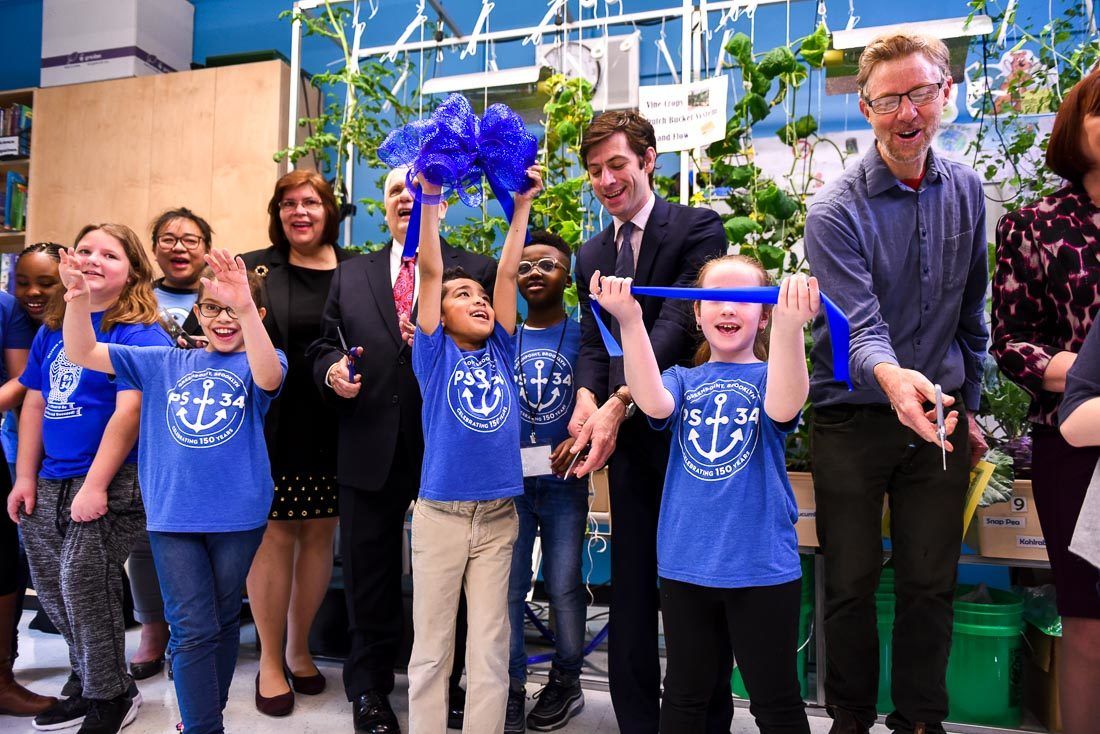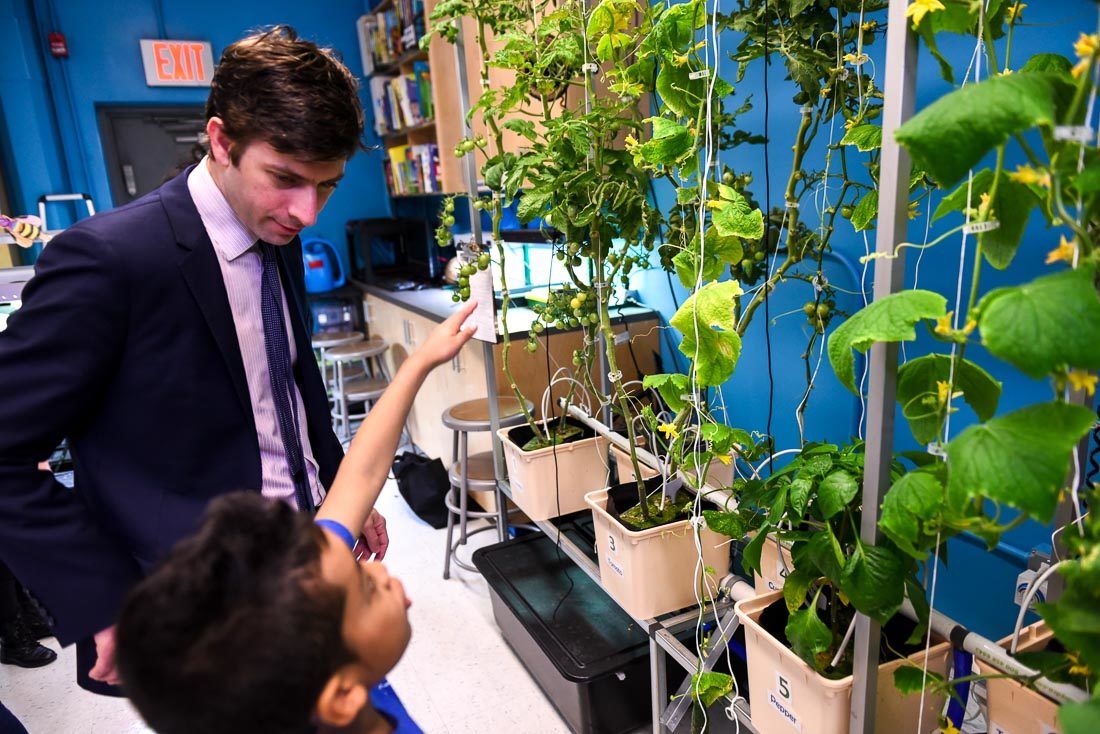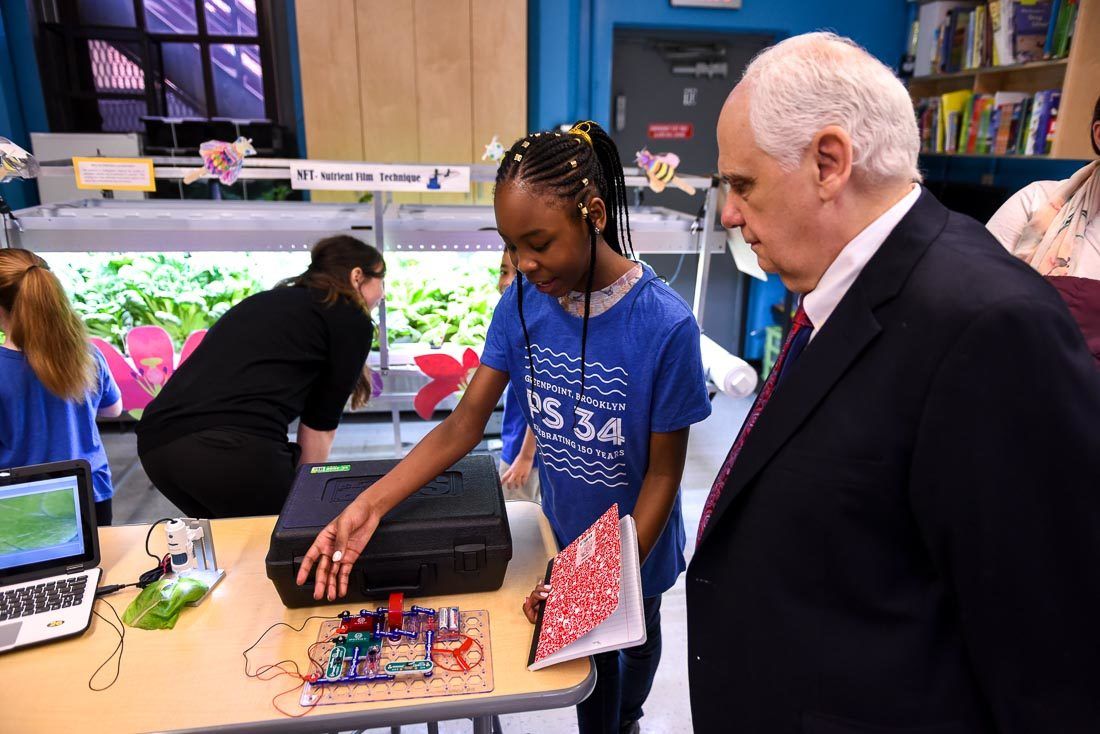Growing STEM Futures, P.S. 34 Celebrates Their Hydroponic Garden


GREENPOINT – After muddling through with limited resources for nearly 3 years, students and teachers alike celebrated the opening of a new Green STEM Lab at P.S. 34 in Greenpoint this morning.
Excited elementary students gave tours through the bright green vines of peas, tomatoes and cucumbers, which climbed from hydroponic Dutch bucket systems, soundtracked by the trickle of recycling water running down through tower gardens and across nutrient trays, feeding leafy basil, rainbow chard and kohlrabi.
“The best part is the food,” said 3rd-grader Monte, pointing at the vegetables while giving a tour of the projects. “Plus, you control the weather!”

Principal Carmen Asselta welcomed parents, PTA members and local politicians to the ribbon-cutting ceremony, recalling the conversations four years ago that led to the launch of the STEM program at P.S. 34—long before the impressive room and equipment were available. “We came together as a community,” said Asselta, “Because at the end of the day, it’s for the children.”
Funding for the Green STEM Lab, which features, along with the impressive hydropnics systems, a suite of 30 laptops, digital microscopes and a robot for programming practice, came from Cycle 5 of Participatory Budgeting, when resounding support from parents and community members allocated $250,000 to the school’s STEM goals.

“The room was gutted down to the brick,” said Jeanne Marshall, the STEM teacher at P.S. 34. A classroom teacher for the first 12 of her 15 years, Mrs. Marshall has been leading the way and teaching STEM at the school since long before the funding.
A proponent of hands-on, tactile learning, Marshall sees the modern equipment as a great boon. While the Green STEM efforts are mostly aimed at grades 3-5, she’s even been able to use the modern microscopes with Kindergarteners, she said.
Both Assemblymember Joe Lentol (D-50) and Councilmember Stephen Levin (D-33) were present at the event. After receiving a whirlwind tour from a fast-talking young student, Lentol was impressed at the knowledge of the kids—and a little winded. “If you came today and saw the enthusiasm of these boys and girls, that’s all you need to know,” he said. “This is a great project.”
Levin praised the grassroots nature of the project, which was spearheaded by the PTA and community members, going from zero to $250k in just about two years. “That’s fast for government!” Lentol quipped.
Outlining the role of STEM learning in the journey through high school and into college, Levin told the gathered students about their responsibilities to environmental stewardship. “You’re the future—you’re gonna save the planet,” he said. The young students listened wide-eyed, serious, their short legs swinging from the stools where they sat.
Even if the message was absorbed better by the parents, the Councilmember’s remarks were spot on. All of the middle schools the current students will be applying to will have STEM programs, and many of their potential high schools will as well. Some are funded by Participatory Budgeting, while others receive funds from the Borough President’s office—which allocated $50 million to 150 schools in 2018. That number is a doubling of previous investment, making up about half of the Borough President’s capital budget.
The extensive hydroponics system was installed by Manhattan-based Sun Works, a non-profit started by two Upper West Side parents. Originally creating projects for their children’s school, the duo grew Sun Works into a major provider for green STEM infrastructure, having created 70 labs at schools citywide, said co-founder Sidsel Robards. Sun Works was behind the rooftop garden at Midwood’s Edward R. Murrow High.
As attendees left the ceremony, Mr. Marshall was busy with a pair of shears, cutting broad-leafed lettuce and fragrant basil and bagging it up for departing parents. “There’s so much,” she said, “We’ve gotta harvest so we can grow more!”




